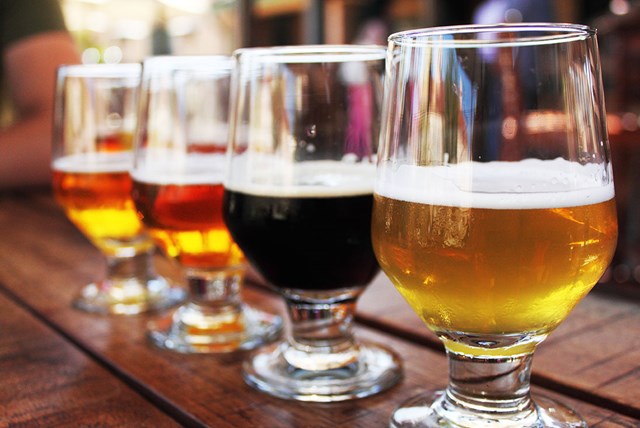
“Milk is for babies. When you grow up you have to drink beer.”
Or so 1977’s Arnold Schwarzenegger would have you believe. By contrast, some modern gym rats swear by GOMAD (gallon of milk a day) and feel guilty just looking at anything vaguely alcoholic. But is this fear justified?
First consider what you do to your muscles when you exert yourself. You damage them. Then, over the next couple of days, given enough food and rest, you repair them. So that the same stressor (exertion) won’t hurt your muscles again (as much) you make them stronger, bigger, and more resilient.
RELATED: The Simple Workout Hack That Will Double Your Muscle Gains
You can assess improvements in muscle recovery three ways. One way is to measure the rate of muscle protein synthesis. Another is to measure our chief anabolic hormone: testosterone. And yet another way, the least liked by scientists because it’s the least accurate, is to measure performance.
RELATED: The Best Type of Exercise For Ageing Muscles
How does booze fit into all this?
Confirming a slew of animal studies, the most relevant human trial to date reported that heavy drinking post-exercise (about 7 beers for a 150-pound person) suppressed muscle protein synthesis, according to a 2014 study. The same was true even when the study participants consumed 25 grams of protein before drinking alcohol. So, in short, binge drinking after exercise? Not a good idea for many reasons.
Alcohol is most damaging during the post-exercise anabolic window (the up-to-four hours following a typical weight-lifting session). Remember, though, that muscle protein synthesis can stay elevated for up to 24 hours after a workout (which is why bedtime protein is important). Therefore, having too much alcohol in your blood at any time during this period may hinder your recovery.
So what is “too much?”
On the whole, and especially if you exercise, science would advise that one or two beers is fine. In other words, unless you have a habit of binge drinking, you’ll be okay. Current evidence suggests that if the occasional beer has an effect on your gains, positive or negative, this effect is small—small enough that if a refreshing pint of your favourite beer is your way to unwind after a hard workout, then you can drink without guilt.
Finally, a recent study found that isohumulones, the main compounds responsible for the bitter taste of hops, might support weight loss. This study only investigated the fat-burning potential of isolated isohumulones, however, not of beer as a whole, so don’t start downing pints in the hope of shedding pounds, especially because the calories in alcohol can quickly add up. Still, after this study, one cannot help speculating that IPAs, with their high hop content, might have a slight advantage over other beers.
Still, there is hop. Well, hope.
Kamal is the director of Examine.com, an independent and unbiased encyclopaedia on supplementation and nutrition. He is a nutrition researcher with an MPH and MBA from Johns Hopkins University, and is on hiatus from a PhD in nutrition, in which he researched the link between diet and chronic pain. He has published peer-reviewed articles on vitamin D and calcium as well as a variety of clinical research topics.
This article originally appeared on menshealth.com.














